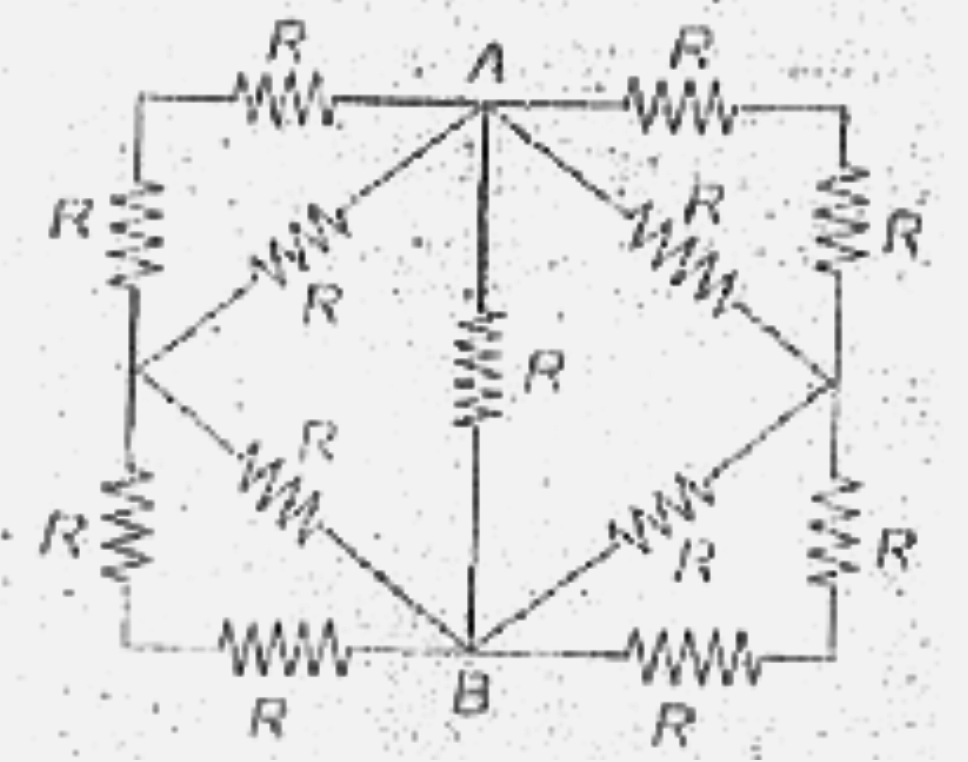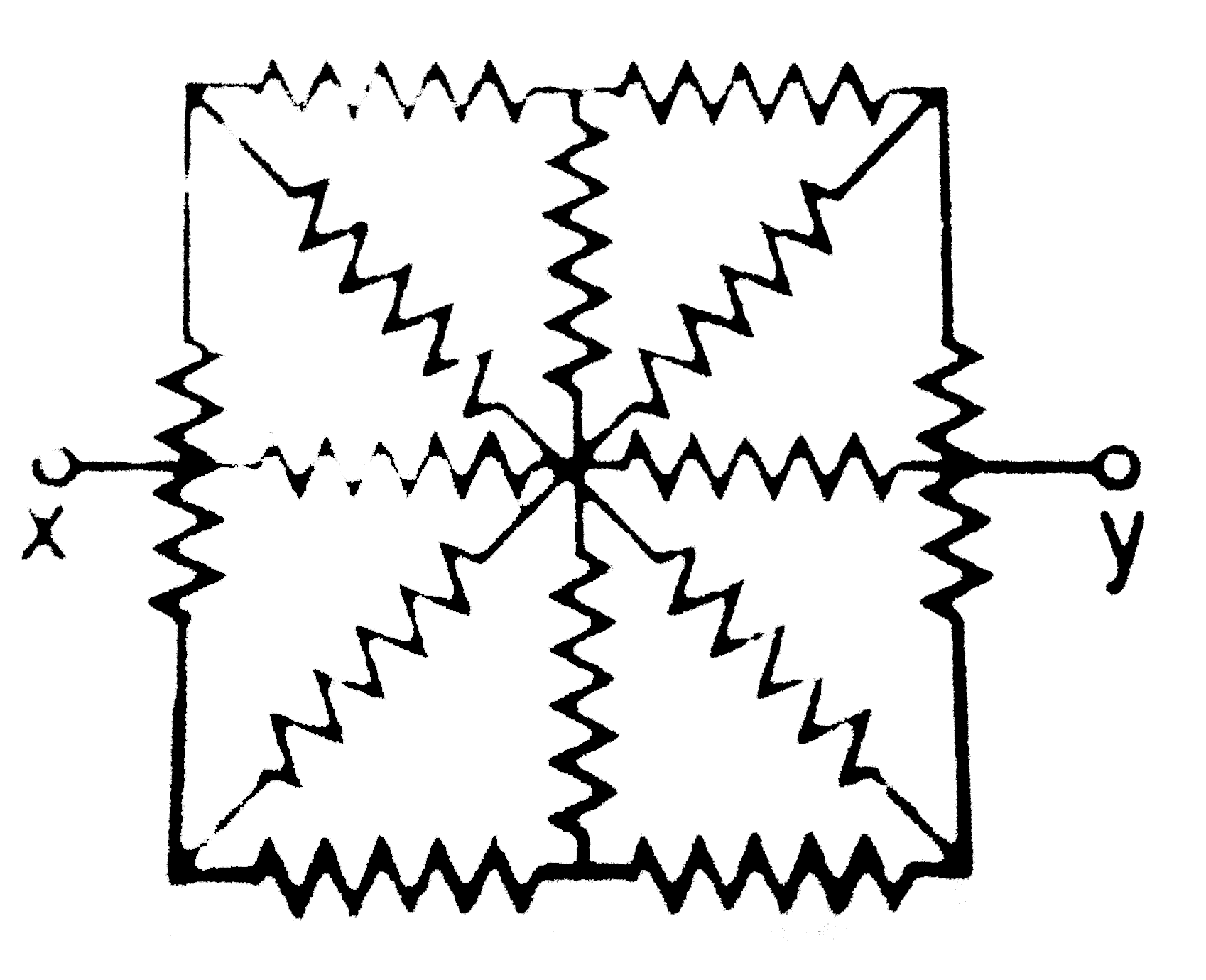A set of 'n' identical resistors, each of resistance 'R' when connected in series have an effective resistance 'X'. When they are connected in parallel, their effective becomes 'Y'. Find out the product of X and Y.
In series RS=R1+R2+R3+….
RS=X=R+R+R+ ….upto n
X = nR
In Parallel
1RP=1R1+1R2+1R3+… upto n
Y=Rn
Hence XY=R2
Topper's Solved these Questions
- BOOK - MODERN PUBLICATIONCHAPTER - CURRENT ELECTRICITYEXERCISE - REVISION EXERCISES (LONG ANSWER QUESTIONS)10videos
CURRENT ELECTRICITY
- BOOK - MODERN PUBLICATIONCHAPTER - CURRENT ELECTRICITYEXERCISE - REVISION EXERCISES (NUMERICAL PROBLEMS)24videos
CURRENT ELECTRICITY
- BOOK - MODERN PUBLICATIONCHAPTER - CURRENT ELECTRICITYEXERCISE - REVISION EXERCISES (FILL IN THE BLANKS)10videos
CURRENT ELECTRICITY
- BOOK - MODERN PUBLICATIONCHAPTER - ATOMS EXERCISE - Chapter Practice Test16videos
ATOMS
- BOOK - MODERN PUBLICATIONCHAPTER - DUAL NATURE OF RADIATION AND MATTER EXERCISE - CHAPTER PRACTICE TEST15videos
DUAL NATURE OF RADIATION AND MATTER
Similar Questions
A set of n identical resistors, each of resistance RΩ, when connected in series have an effective resistance XΩ and when the resistors are connected in parallel, their effective resistance is YΩ. Find the relation between R, X and Y.
View SolutionThirteen resistors each of resistance R are connected in the circuit as shown . The effective resistance between A and B is
 View Solution
View Solution
Knowledge Check
- Question 1 - Select One
If Four resistors each of 1Ω are connected in parallel the effective resistances will be
A0.5ΩB0.25ΩC4ΩD2Ω - Question 2 - Select One
n resistors, each of resistances R are first connected in series so as to give an effective resistance Rs Subsequently these resistors are connected in parallel so as to give an effective resistance Rp. Then the ratio RsRp will be
An:1Bn2:1C1:n2D1:n - Question 3 - Select One
Two identical capacitors when joined in series have an effective capacitance of 3μF. When connected in parallel, the effective capacitance becomes 12μF. What is the capacitance of each capacitor ?
A6μFB3μFC12μFD9μF
Identical resistance of resistance R are connected as in figure then find out net resistance between x and y.
 View Solution
View SolutionThree identical resistors, each of resistance R, when connected in series with a d.c. source, dissipate power X. If the resistors are connected in parallel to the same d.c. source, how much power will be dissipated ?
View SolutionThree identical resistors, each of resistance R, when connected in series with a d.c. source, dissipata power X. if the resistors are connected in parallel to the same d.c. source, how much power will be dissipated?
View SolutionWhen resistors are connected in series, then net resistance_____
View SolutionThe equivalent resistance of three equal resistances connected in series is 27Ω. There equivalent resistance when connected in parallel is
View Solution
